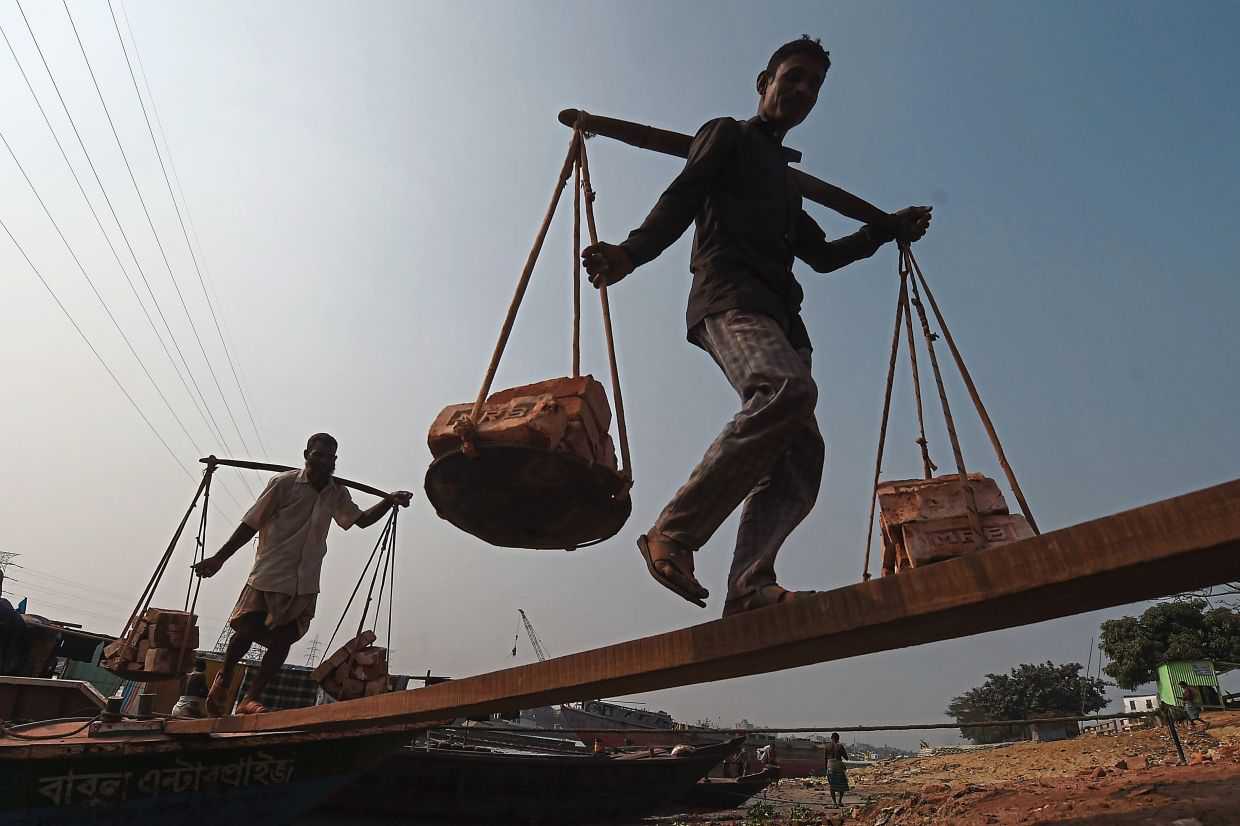‘Abilities passport’ for migrant workers

Image: Collected
DURING the early a few months of the Covid-19 global pandemic, almost 400,000 migrant personnel were forced to come back home to Bangladesh, not knowing when the crisis might end or if they would return to their jobs.
Each year, an incredible number of Bangladeshi individuals travel afar to are masons, plumbers, carpenters, motorists, gardeners, cleaners and vendors. Virtually all keep these shores with no formal reputation of their expertise or experience. To create matters worse, they return house, as much did in April/May of 2020, without the further reputation of the considerable expertise and experiences acquired abroad. This not merely leaves them unable to get good jobs in Bangladesh, but also leaves Bangladesh struggling to capitalise on this pool of skilled individual capital.
According to the World Lender, migrant employees remit over US15bil (RM60.3bil) every year to their families to buy food and other fundamental goods. What can often be overlooked is just how much they contribute - in tens of billions - to the GDP of the united states of destination.
Migration is an integral defining characteristic of Bangladesh’s market, with tens of millions in search of overseas job opportunities in the last 50 years. The topic for the International Migrants Working day in 2020 was “reimagining the continuing future of mobility”. The continuing future of flexibility for migrant workers should be envisioned better in 2021.
This migrant workforce has the potential to create significant contributions to the country’s financial expansion by investing their hard-earned savings in the united states, and monetising human and social capital acquired abroad, such as for example new skills and competencies. However, without any reputation of their improved abilities or any formal certification-even after many years of good international job experience-various remain stuck with low wages, in low-skilled careers with low status.
A recent analysis by the International Company for Migration (IOM) discovered that 60% of migrant staff who've recently returned home expressed a desire to upgrade and seek reputation of their newly-acquired expertise. In fact, 75% said that once overseas operating opportunities resumed, they might prefer to work in a region where their skills will be justly recognised and rewarded.
Sri Lanka offers among skills reputation wherein the government, together with the ILO and area employers’ groups, presents all skilled employees a National Expertise Passport (NSP). The NSP emerges to returnee migrant employees too to help them get formal recognition of the abilities acquired through hands-on knowledge and informal employment/training overseas. The NSP is an invaluable file for jobseekers in terms of finding careers and monitoring upcoming reskilling, retooling and/or upskilling. It’s also a godsend for companies seeking to hire certified, competent and experienced labour.
The ILO and the Expatriates’ Welfare and Overseas Employment Ministry (MOEWOE) is currently exploring methods to introduce an identical scheme in Bangladesh, one that will help employers find the appropriate person for the right job with the proper skills. It also benefits the federal government by helping to streamline migrant staff and returnee workers by skills-type and bridge gaps in the labour marketplace. It also helps the federal government with long-term skills planning the economy and potential employment creation.
The federal government of Bangladesh currently uses the Recognition of Prior Learning (RPL) scheme to measure and certify a worker’s skillsets. TheRPL program was introduced within the 2011 National Expertise Development Policy to help recognise the evolving, informal and on-the-job abilities gained by workers. Even though many Bangladesh-based staff have acquired RPL qualification, millions of migrant employees and returnees remain unacquainted with the system or its multiple rewards regarding increased earning power and usage of better-paid jobs in the home and overseas.
ILO Bangladesh is currently working closely with the MOEWOE and Bangladesh Technical Education Panel (BTEB) to certify returnee migrant workers for their reintegration and re-migration. The country is making steady improvement in establishing and applying a Reputation of Prior Learning (RPL) program. According to BTEB, there will be 411 RPL centres dotted around the country, plus they have certified the abilities of 41,560 personnel, incorporating 15,000 migrant workers.
The MOEWOE is currently looking to strengthen and expand RPL and nationwide skills’ passports for Bangladeshi personnel across Asia. The Bangladesh Superior Commission in the Kingdom of Saudi Arabia has already taken the lead and introduced RPL for migrant employees in the kingdom. The program is to today roll out the scheme to dozens of destination countries, which have high numbers of Bangladeshi workers.
A migrant workforce that's skilled, respected and qualified has the potential to be among the country’s most valuable financial assets. Ultimately, the more these reasonable hard-working individuals earn, the extra their own families, and their beloved homeland, will prosper.
Source: https://www.thestar.com.my
Tags :
Previous Story
- Govt forms 700C fund for jobless Bangladeshi migrant...
- Why building financial bridges in the neighbourhood matters
- Overseas participants about Indian power exchanges soon
- Bangladesh seeks enhanced trade ties with Sri Lanka
- Bangladesh’s bourse is the only one on the...
- Crisis-Ridden Sri Lanka Tourism Aims to Regain Momentum
- Sri Lanka plans to set up texture preparing...
- Bangladesh takes 5 steps ahead on list of...